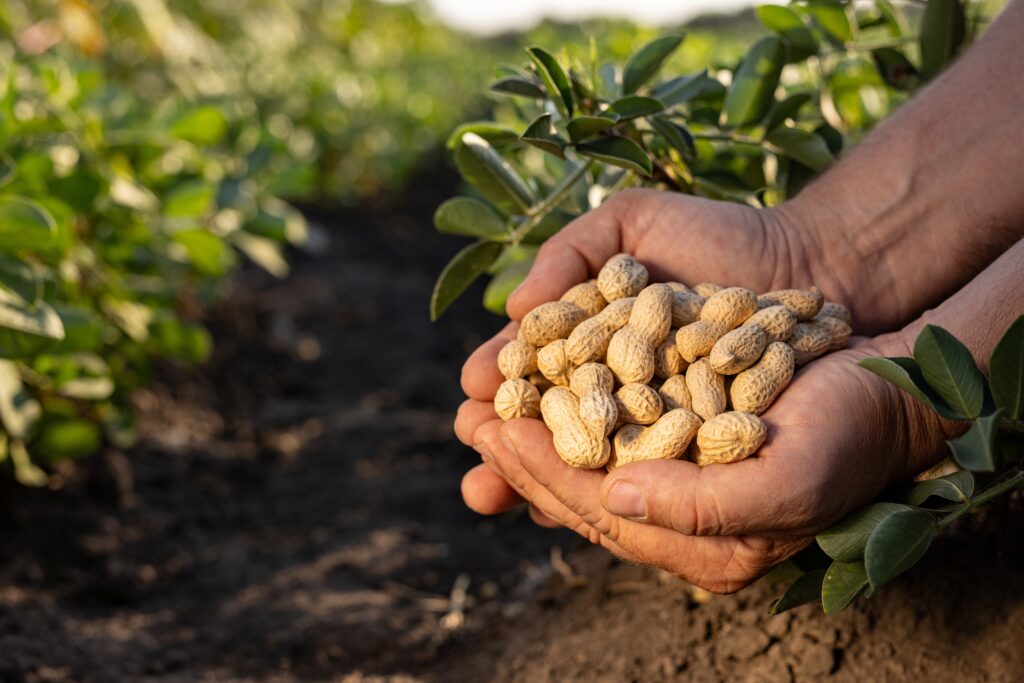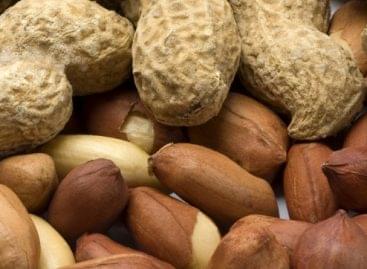Mars Invests $5 Million in Groundbreaking Agricultural Science Research to Advance the Future of Peanuts
Mars recently announced its first comprehensive program, Protect the Peanut, aimed at reducing the challenges facing peanut production and ensuring the security of the global peanut supply.
 The company’s goal is to identify and stop the processes that currently cause up to 30 percent of peanuts to be lost, never making it from the field to the table. The $5 million, five-year agricultural science program will use unprecedented genomic technologies to develop peanut varieties that are more resilient to pests, diseases and increasingly unpredictable weather.
The company’s goal is to identify and stop the processes that currently cause up to 30 percent of peanuts to be lost, never making it from the field to the table. The $5 million, five-year agricultural science program will use unprecedented genomic technologies to develop peanut varieties that are more resilient to pests, diseases and increasingly unpredictable weather.
The multi-million dollar commitment builds on decades of Mars-funded peanut research. During that time, the company has invested nearly $10 million in a number of cutting-edge scientific projects. One of these breakthroughs is the resolution of a botanical mystery that has stumped scientists for generations: mapping the peanut genome.
Mars is a co-founder of the Peanut Genome Initiative, an international scientific research collaboration that has identified more than 2.5 billion DNA base pairs—about the same number as the human genome. The results of the research have been made available as open-source scientific data to the entire industry and science. As a result, the possibility of creating and preserving the perfect peanut has become a matter of precise genetic determination, not speculation.
“We believe Mars can play a unique role as an engine of innovation, which is why we are thinking in generations and believe that science is the key to preserving the future of peanuts,” said Amanda Davies, Director of Research and Development, Procurement and Sustainability, Mars Snacking. “We know that the perfect peanut won’t happen by chance. It takes long-term commitment, scientific creativity and the unwavering work of our partners to turn an idea into a reality, from the greenhouse to the farmer’s field. Innovation without implementation is nothing more than imagination.”
The Protect the Peanut program is already showing promising results. A research team at the University of Georgia’s Wild Peanut Lab—a long-term Mars partner—has bred new peanut varieties that can survive in the harshest conditions and can even increase yields by up to 30 percent. One such variety, Sempre Verde (“Evergreen”), is already being grown in Brazil and does not require the use of fungicides.
“The discovery of the cultivated peanut was a once-in-a-thousand-year miracle of nature, but we can’t wait for another miracle. Creating more resilient peanut varieties requires constructive science, discipline, and partnerships,” said Dr. Soraya Bertioli, a senior researcher at the University of Georgia’s Institute of Plant Pathology. “Our scientific breakthroughs would not have been possible without the long-term support of Mars.”
The Mars Protect the Peanut program also supports the following research:
- Breeding drought- and disease-resistant peanut varieties in collaboration with the University of Georgia Tifton Campus, HudsonAlpha Biotechnology Institute, and the USDA Agricultural Research Service.
- Developing disease-resistant peanut varieties in collaboration with USDA ARS, HudsonAlpha, and the Argentine National Institute of Agricultural Technology (INTA).
- Using wild peanut varieties to breed more resistant peanut varieties in collaboration with the Instituto Agronômico de Campinas (IAC) and EMBRAPA agricultural research institute In Brazil.
The program is part of Mars’ long-term “Sustainable in a Generation” program.
Related news
Not all “peanuts” are the same: important differences revealed in store offerings
🎧 Hallgasd a cikket: Lejátszás Szünet Folytatás Leállítás Nyelv: Auto…
Read more >Related news
How Coca-Cola plans to build more billion-dollar brands
🎧 Hallgasd a cikket: Lejátszás Szünet Folytatás Leállítás Nyelv: Auto…
Read more >









